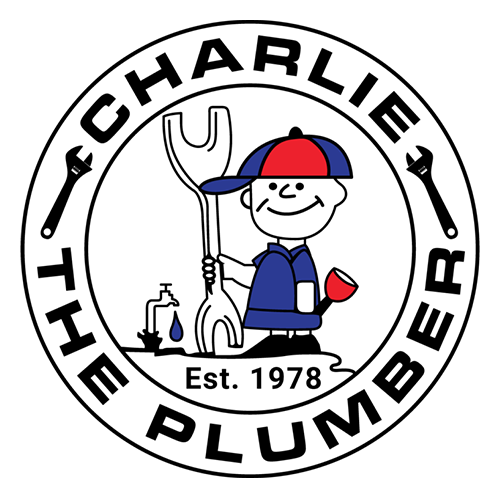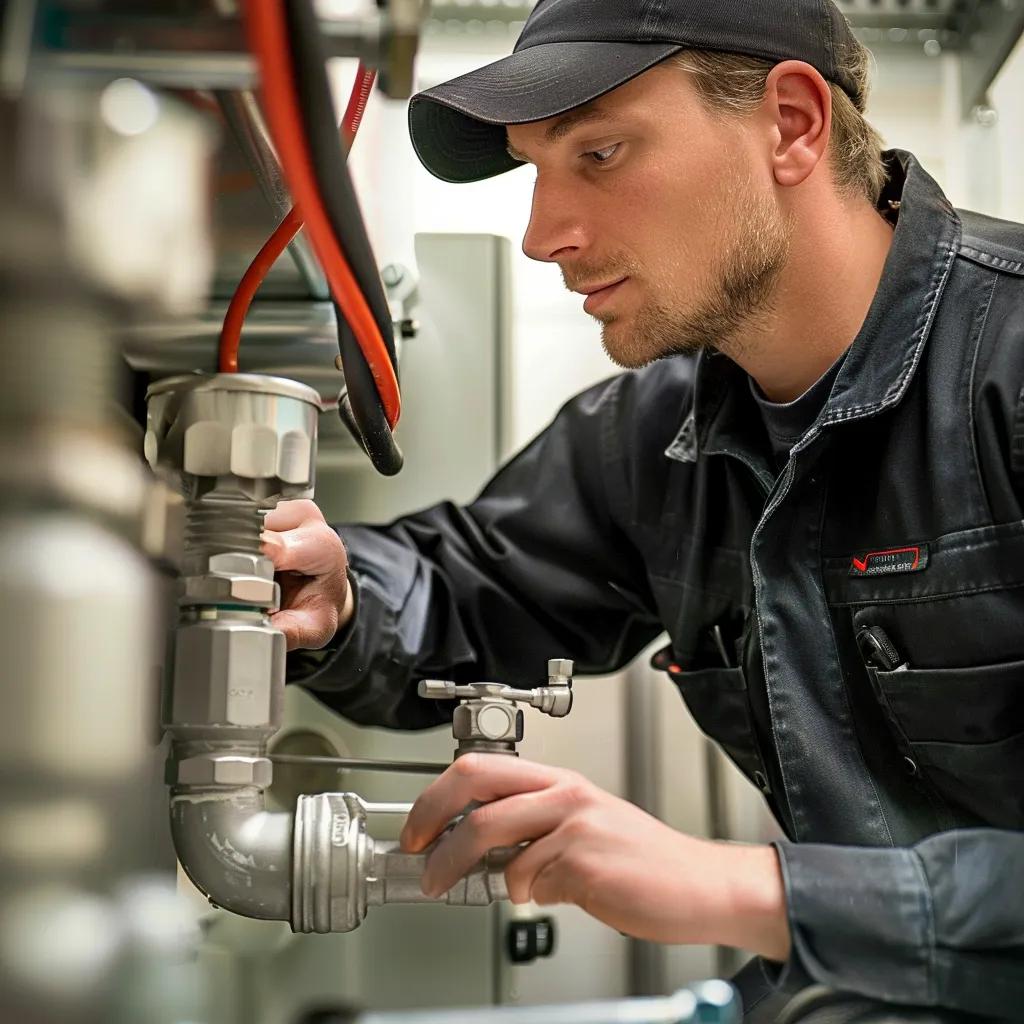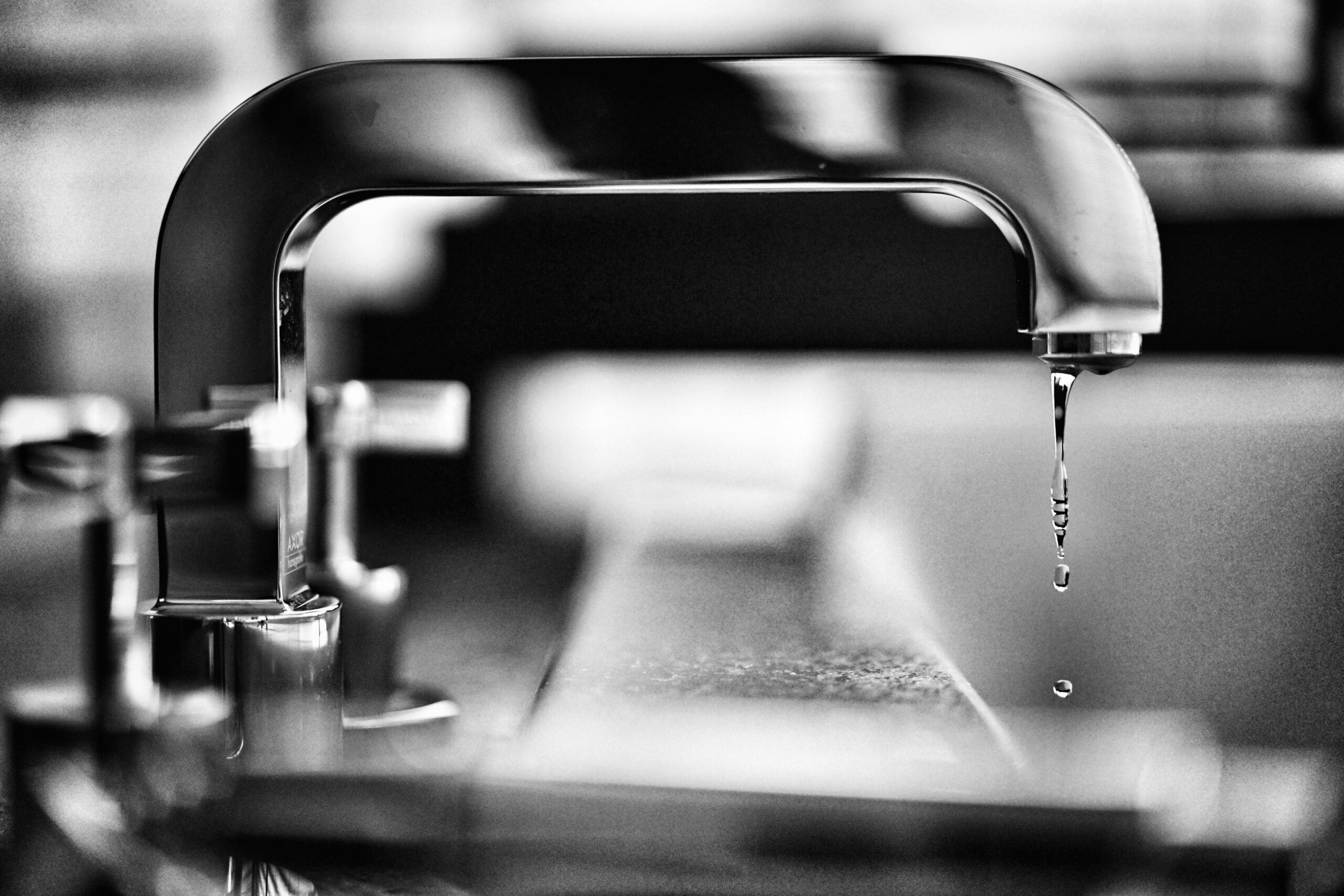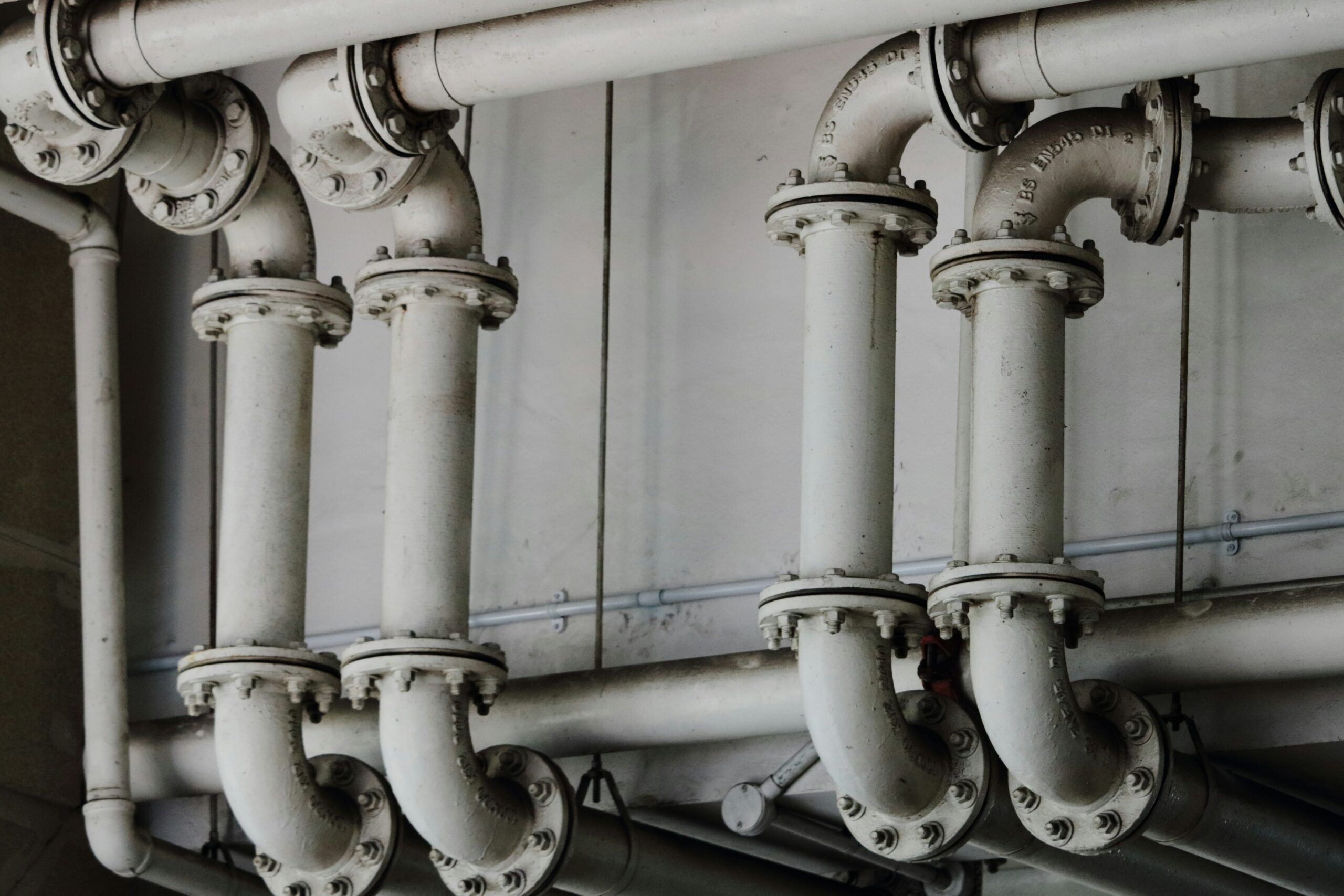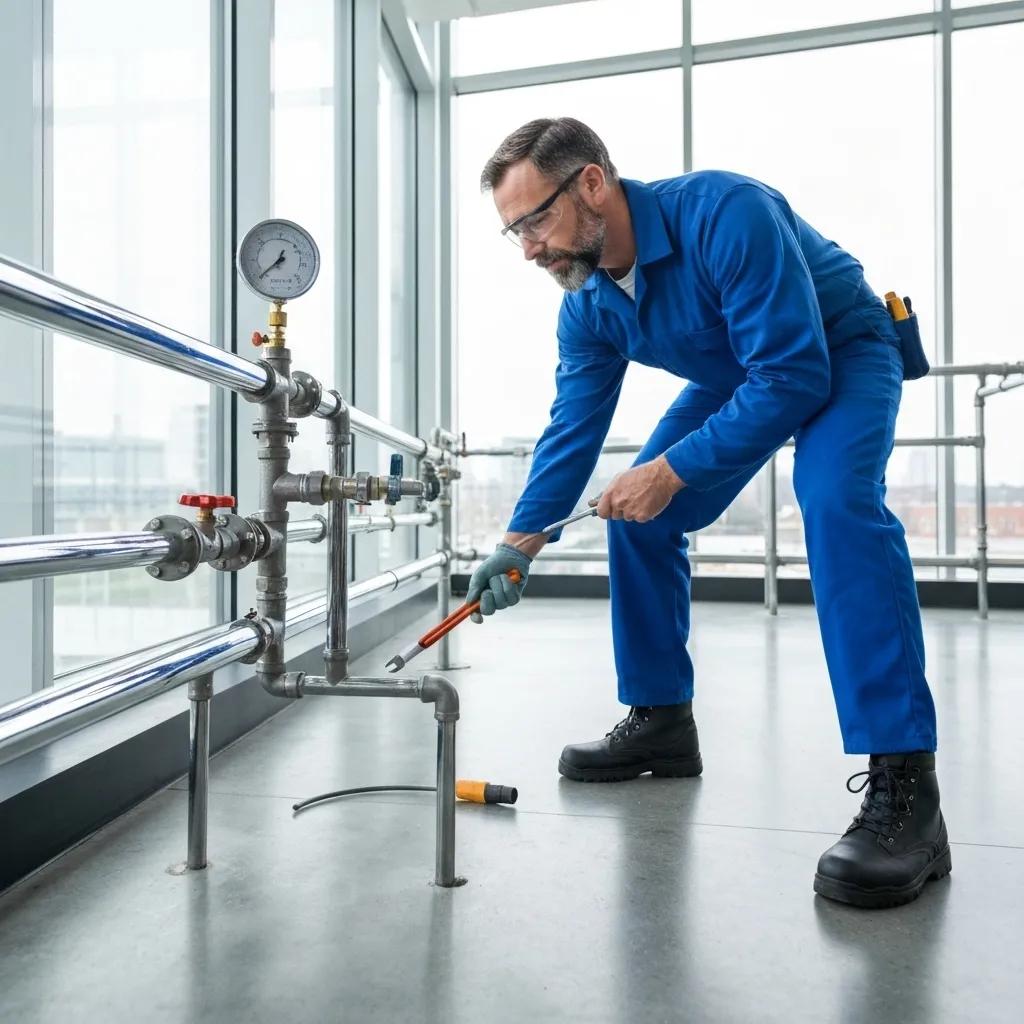Every year, unnoticed leaks and ageing pipes cost businesses across Gold Coast, Logan, and Brisbane thousands of dollars in emergency repairs and downtime. This article explains why plumbing maintenance businesses must prioritise preventative care, how commercial systems benefit, and what warning signs demand professional intervention. We’ll cover foundational themes including cost savings, safety compliance, key systems to service, local maintenance offerings, choosing the right plumber, scheduling best practices, emergency preparedness, industry-specific considerations, regulatory standards, efficiency gains, and program implementation. Along the way, you’ll discover how Charlie the Plumber’s commercial plumbing and gas fitting solutions help safeguard operations and extend asset lifespans.
Why Is Regular Plumbing Maintenance Crucial for Businesses?
Regular plumbing maintenance for businesses is a scheduled service that identifies potential faults before they become emergencies, ensuring operational continuity and compliance while reducing long-term costs. By inspecting pipes, fixtures and gas fittings at set intervals, organisations prevent disruptive failures, protect staff and customers, and promote sustainability. For example, a routine survey might reveal corroded joints that, if ignored, would lead to burst pipes and costly water damage. Understanding these advantages sets the stage for examining specific benefits like financial impact, health and safety, downtime prevention, equipment longevity and water efficiency.
How Does Preventative Plumbing Save Businesses Money?

Preventative plumbing saves businesses money by intercepting minor issues—such as small leaks or loose fittings—that would escalate into major repairs if left unchecked. Early detection of corrosion or blockages cuts emergency repair bills by up to 70%, while planned part replacements cost a fraction of unscheduled breakdowns. Regular maintenance contracts often include fixed-rate service calls, enabling firms to budget accurately. Identifying these savings demonstrates why proactive care is a sound investment that directly boosts the bottom line and mitigates financial risk.
Cost Savings from Preventative Plumbing
Preventative plumbing maintenance can significantly reduce costs by addressing minor issues before they escalate into major repairs. Early detection of problems like corrosion or blockages can cut emergency repair bills substantially, making proactive care a sound financial investment for businesses.
Plumbing Contractors of America
This supports the article’s claim that preventative maintenance saves businesses money by preventing costly emergency repairs.
What Health and Safety Regulations Does Plumbing Maintenance Ensure?
Commercial plumbing maintenance ensures compliance with workplace health and safety regulations by verifying that water quality, gas lines and backflow prevention devices meet Queensland standards. Inspections confirm that trade waste outlets, grease traps and pressure settings adhere to the Queensland Plumbing and Drainage Act 2018. This process reduces the risk of contamination, gas leaks and legal penalties. Maintaining regulatory alignment not only protects employee wellbeing but also avoids fines, supporting uninterrupted business operations.
Queensland Plumbing and Drainage Act Compliance
Commercial plumbing maintenance ensures compliance with workplace health and safety regulations by verifying that water quality, gas lines, and backflow prevention devices meet Queensland standards. Inspections confirm that trade waste outlets, grease traps, and pressure settings adhere to the Queensland Plumbing and Drainage Act 2018.
Queensland Government, Queensland Plumbing and Drainage Act 2018
This citation supports the article’s assertion that plumbing services ensures compliance with relevant regulations.
How Does Maintenance Minimise Business Downtime and Disruptions?
Routine maintenance minimises downtime by scheduling inspections and minor repairs during off-peak hours, preventing unplanned shutdowns triggered by burst pipes or blocked drains. A well-executed service program typically reduces emergency call-outs by 60%, ensuring that equipment like hot water systems and sewer lines function reliably when needed. Prioritising preventative care preserves customer experience, sustains productivity and underpins uninterrupted service delivery across commercial premises.
In What Ways Does Plumbing Maintenance Extend Equipment Lifespan?
Regular checks on fixtures, valves and water heaters extend equipment lifespan by addressing wear and tear, replacing sacrificial anodes in hot water units and lubricating moving parts in gas appliances. This attention forestalls premature corrosion of copper pipes and mineral build-up in boilers, which otherwise accelerate decline. Extensive maintenance relationships have shown that businesses can double the effective service life of key plumbing services when adhering to a structured care plan.
How Does Regular Maintenance Promote Water Efficiency and Sustainability?
Consistent plumbing maintenance promotes water efficiency by detecting hidden drips, calibrating pressure regulators and clearing scale from showerheads and faucets. Even a minor leak can waste 10,000 litres per year, so sealing seals and seals promptly reduces utility bills and conserves resources. Businesses that implement water-saving upgrades—like sensor taps and low-flow fittings—alongside routine servicing often achieve a 20–30% reduction in consumption, supporting sustainability targets and lowering environmental impact.
What Are the Key Commercial Plumbing Systems That Need Regular Maintenance?
Key commercial plumbing systems require scheduled servicing to function efficiently and safely. These include drain and sewer networks, hot water installations, gas lines and appliances, backflow prevention devices and high-use fixtures. Proactive maintenance of each system prevents failures that could interrupt operations or violate regulatory standards. A targeted plan ensures every component—from grease traps to faucets—is inspected at the appropriate interval.
Why Are Drain and Sewer Line Inspections Essential for Businesses?
Drain and sewer line inspections are essential for businesses because blockages from grease, debris or root intrusion can cause costly backups and health hazards. Using CCTV cameras or hydro-jetting equipment, specialists clear clogs and assess pipe integrity before overflows occur. This service prevents unscheduled closures, maintains hygienic conditions and extends the service life of underground piping, ensuring waste disposal remains uninterrupted.
What Maintenance Does Commercial Hot Water Systems Require?
Commercial hot water systems require flushing to remove sediment, replacement of sacrificial anode rods to prevent tank corrosion and inspection of pressure relief valves for safe operation. These tasks preserve heating efficiency, reduce energy costs and avert catastrophic tank failures. A typical maintenance routine includes tuning thermostats and checking electrical or gas burners for optimal performance, supporting consistent hot water supply across washrooms, kitchens and laundries.
How Is Gas Fitting Maintenance Important for Safety and Compliance?
Gas fitting maintenance is critical for safety and compliance because deteriorating pipes or loose connections can result in hazardous leaks or carbon monoxide exposure. Certified gas fitters verify regulator pressures, test appliance seals and ensure ventilation meets Australian Gas Association standards. Regular servicing reduces fire risk, ensures efficient appliance performance and upholds legislative requirements, safeguarding both property and personnel.
Why Is Backflow Prevention Testing Critical for Commercial Properties?
Backflow prevention testing is critical for commercial properties to prevent contaminated water from reversing into the mains supply, which could endanger public health. Accredited testers inspect and certify devices such as double check valves and reduced pressure zone assemblies at least annually. This verification maintains compliance with local water authorities, prevents cross-contamination and proves due diligence in protecting drinking water integrity. For more information, visit our backflow valves services.
How Should Fixtures and Faucets Be Maintained to Prevent Leaks?
Fixtures and faucets should be maintained by replacing worn washers, O-rings and cartridges, inspecting seals for chemical degradation and adjusting handle tensions to stop drips. Regular lubrication of threaded connections and verification of mounting stability also prevent stress-related fractures. Keeping these high-use fittings in proper working order prevents water waste, reduces slip hazards from floor puddles and supports overall system reliability.
What Are the Common Signs That Your Business Needs Professional Plumbing Attention?
Several warning signs signal that a professional plumber should inspect your commercial property. Persistent low pressure, frequent clogs, unexplained water bill spikes, foul odours and visible leaks each indicate underlying issues requiring urgent care. Addressing these symptoms proactively prevents operational disruptions and cost escalation before they impact daily activities.
How Can Persistent Low Water Pressure Indicate Plumbing Issues?
Persistent low water pressure indicates plumbing issues such as pipe corrosion, mineral buildup or hidden leaks. When flow rates dip below functional thresholds in showers or taps, it may signal narrowing of pipe interiors or failed pressure regulators. Prompt diagnostics isolate the root cause, restoring adequate water delivery and preventing stress on pumps or heating systems.
What Does Frequent Drain Clogging Mean for Your Business?
Frequent drain clogging means that blockages—often caused by grease accumulation, foreign objects or soap scum—are accumulating faster than they are cleared. In restaurants and hospitality venues, clogging can halt dishwashing or kitchen operations. Professional hydro-jetting and root-cutting services remove obstructions and implement preventative measures, ensuring continuous drainage performance.
Why Should Unexplained High Water Bills Raise Concerns?
Unexplained high water bills raise concerns because hidden leaks—within walls, under floors or around foundation slabs—can waste thousands of litres of water without visible evidence. A sudden bill increase of 15% or more commonly indicates faults like pinhole leaks in copper piping or malfunctioning irrigation controls. Early leak detection surveys identify these issues, preventing ongoing waste and inflated utility costs.
What Do Foul Odours from Drains or Sewers Signal?
Foul odours from drains or sewers signal sanitary sewer gas emissions or decaying organic matter trapped in the piping network. Such smells may indicate compromised seals on traps, damaged vent stacks or blocked branch drains. Remediation involves flushing lines, replacing faulty traps and verifying venting compliance to restore a safe, odour-free environment.
How to Recognise Visible Leaks, Water Damage, or Mold in Commercial Premises?
Visible leaks, water stains on ceilings or walls, and mould growth in corners or behind fixtures are overt signs of plumbing failure. Water intrusion can compromise structural integrity and pose health risks through mould spores. A professional inspection uncovers concealed pipeline faults and guides immediate repairs to prevent property damage and liability concerns.
Which Commercial Plumbing Maintenance Services Are Available for Businesses in Gold Coast, Logan, and Brisbane?
Businesses in Gold Coast, Logan, and Brisbane can access a full suite of commercial plumbing services—from drain cleaning to gas fitting inspections—backed by local expertise and 24/7 emergency response. Charlie the Plumber offers customised programmes, ensuring each property receives the right interventions at the right time.
What Does Commercial Drain Cleaning Include and Why Is It Important?
Commercial drain cleaning includes CCTV pipe inspections, manual rodding and high-pressure hydro-jetting to remove grease and debris buildup. This service prevents backups that disrupt workflows, protects against structural damage from overflows and maintains hygienic wastewater disposal. Investing in scheduled drain clearing preserves pipe integrity and reduces emergency call-outs.
How Is Backflow Prevention Testing Conducted in Brisbane?
In Brisbane, backflow prevention testing is conducted by certified testers who isolate each device, measure differential pressures and inspect internal parts for wear. After verifying compliance with local water authority codes, testers issue certification that satisfies building inspection requirements. Annual testing safeguards potable water and demonstrates regulatory diligence.
What Are the Benefits of Commercial Hot Water System Maintenance in Logan?
Commercial hot water system maintenance in Logan enhances system reliability, reduces energy consumption and extends heater lifespan. Scheduled flushing removes sediment, anode rod replacement prevents tank corrosion and burner tuning improves heat transfer efficiency. This proactive care reduces breakdown risks, ensuring staff and customers always have hot water when required. For more information on our services, visit hot water systems.
How Do Gas Fitting Maintenance Services Ensure Safety and Compliance?
Gas fitting maintenance services ensure safety and compliance by testing pipework integrity, verifying pressure settings and inspecting appliance connections against Australian Gas Association standards. Certified gas fitters perform leak detection with advanced electronic sniffers and calibrate regulators to avoid under- or over-pressurisation. This attention to detail prevents incidents and fulfils legal obligations.
What Emergency Commercial Plumbing Services Are Offered 24/7?
Emergency commercial plumbing services offered 24/7 include burst pipe containment, urgent leak repairs, sewer backup clearance and temporary shutdown solutions. Rapid-response teams arrive on site with specialised equipment to isolate faults and restore essential services. Businesses benefit from minimal disruption and immediate risk mitigation at any hour.
How Can Businesses Choose the Right Commercial Plumber in Gold Coast, Logan, and Brisbane?
Selecting the right commercial plumber involves assessing licensing, insurance, relevant experience, emergency availability and reputation. A qualified provider ensures legal compliance, delivers quality workmanship and responds swiftly when issues arise—protecting your operations and assets.
Why Is Licensing and Insurance Important When Hiring a Commercial Plumber?
Licensing and insurance are important because they verify that a plumber meets Queensland Building and Construction Commission (QBCC) standards and carries public liability cover. This protection ensures any accidental damage during repairs is compensated and that work quality adheres to industry regulations.
How Does Experience with Commercial Properties Affect Service Quality?
Experience with commercial properties affects service quality by equipping plumbers to handle large-scale systems, complex installations and regulatory inspections. Technicians familiar with plumbing services, trade waste protocols and heavy-duty equipment can diagnose issues faster and execute durable repairs.
What Role Does Emergency Service Availability Play in Choosing a Plumber?
Emergency service availability plays a critical role because plumbing failures can occur at any time, disrupting operations and risking damage. A plumber offering 24/7 response and guaranteed arrival windows minimises downtime and reassures businesses that help is always at hand when needed.
How Do Reputation and Customer Reviews Influence Your Choice?
Reputation and customer reviews influence your choice by providing social proof of reliability, workmanship and communication. Positive testimonials and high ratings on local directories signal a provider’s commitment to customer satisfaction and often correlate with consistent service excellence.
How Often Should Commercial Plumbing Maintenance Be Scheduled?
Commercial plumbing maintenance should be scheduled based on system type, usage intensity and regulatory mandates. Annual checks are typically recommended for most systems, with bi-annual or quarterly visits for high-use components.
Before comparing intervals, here is a simple chart to guide scheduling decisions for key systems.
| System | Recommended Interval | Purpose |
|---|---|---|
| Drain and Sewer Lines | Annually | Prevent blockages and backups |
| Hot Water Systems | Bi-annually | Flush sediment and check anodes |
| Gas Lines & Appliances | Annually | Leak detection and pressure test |
| Backflow Prevention Devices | Annually | Compliance testing |
| Fixtures and Faucets | Quarterly | Seal inspection and lubrication |
What Is the Recommended Maintenance Interval for Different Plumbing Systems?
The recommended maintenance interval for different plumbing systems varies: most businesses require annual inspections for gas lines, sewers and backflow devices, bi-annual servicing of hot water units and quarterly reviews of high-use fixtures. Tailoring intervals to usage patterns guarantees cost-effective preventative care.
How Does Regular Scheduling Prevent Costly Emergencies?
Regular scheduling prevents costly emergencies by catching early-stage corrosion, leaks or malfunctions before they escalate. Preventative maintenance programmes reduce unplanned repairs by an average of 60%, enabling businesses to allocate budgets for planned upkeep instead of emergency call-outs.
What Are the Consequences of Neglecting Scheduled Plumbing Maintenance?
Neglecting scheduled plumbing services leads to higher repair expenses, extended downtime, safety hazards and non-compliance fines. Without routine care, minor leaks can trigger structural damage, health risks from mould growth and loss of customer confidence when facilities fail.
How Can Businesses Prepare for and Respond to Plumbing Emergencies?

Effective emergency preparedness combines awareness of common incidents, a clear response plan, quick service access and 24/7 support arrangements.
What Are the Most Common Commercial Plumbing Emergencies?
The most common commercial plumbing emergencies include burst pipes, sewer backups, gas leaks and hot water system failures. These incidents can flood premises, contaminate water lines or halt critical services, making swift resolution essential to maintain safety and operations.
How Should Businesses Create an Emergency Plumbing Response Plan?
Businesses should create an emergency plumbing response plan by listing key contacts, assigning internal roles for initial shutdowns, maintaining a detailed layout of pipework and storing essential supplies like isolation valves and pipe clamps. A written checklist ensures staff know how to isolate water or gas supplies until professionals arrive. For more information, visit plumbing services.
When Should You Contact Emergency Plumbing Services?
You should contact emergency plumbing services immediately upon detecting uncontrollable leaks, sewer overflows, gas odours or loss of hot water that jeopardises safety or business continuity. Early engagement of a 24/7 response team limits damage and accelerates recovery.
How Does 24/7 Emergency Plumbing Support Minimise Business Disruption?
24/7 emergency plumbing support minimises business disruption by providing guaranteed response times, remote triage advice and on-site mobilisation of specialist equipment. Rapid fault isolation prevents secondary damage, ensuring operations resume swiftly.
What Are the Benefits of Commercial Plumbing Maintenance for Specific Industries?
Commercial plumbing maintenance delivers tailored benefits to varied sectors—including multi-residential strata complexes, hospitality venues, industrial plants and commercial kitchens—by addressing unique system demands and compliance requirements. Commercial plumbing services are crucial for maintaining these systems efficiently.
How Does Strata Plumbing Maintenance Differ for Multi-Residential Properties?
Strata plumbing maintenance differs for multi-residential properties by coordinating with body corporate schedules, managing shared piping networks and complying with regulations around common-area waste management. Specialists balance tenant needs with collective system health to prevent inter-unit disruptions.
What Plumbing Challenges Do Restaurants and Hospitality Businesses Face?
Restaurants and hospitality businesses face plumbing challenges such as grease-laden kitchen drains, high hot water demand and trade waste disposal requirements. Regular grease trap cleaning and line inspections ensure uninterrupted kitchen operations and compliance with environmental regulations.
What Are Industrial Plumbing Maintenance Solutions for Large Facilities?
Industrial plumbing maintenance solutions for large facilities involve high-capacity pump servicing, corrosion-resistant piping inspections and automated leak detection sensor integration. These advanced methods support continuous production lines and reduce unplanned shutdowns in manufacturing environments.
How Is Plumbing Maintenance Tailored for Commercial Kitchens?
Plumbing maintenance tailored for commercial kitchens includes daily grease trap monitoring, pressure-balanced faucet servicing and specialist drain cleaning to handle food debris. This focused approach prevents odour issues, offshore water backups and hygiene non-compliance. Blocked drains
What Are the Latest Industry Standards and Regulations Affecting Commercial Plumbing Maintenance in Queensland?
Queensland’s commercial plumbing maintenance must adhere to evolving standards under the Plumbing and Drainage Act 2018, gas fitting regulations and trade waste codes to ensure health, safety and environmental protection.
How Does the Queensland Plumbing and Drainage Act Impact Businesses?
The Queensland Plumbing and Drainage Act mandates licenced practitioners for installations, regular backflow testing and safe disposal of trade waste. Compliance prevents legal penalties and affirms that water services meet public health criteria.
What Are the Gas Fitting Standards Businesses Must Follow?
Businesses must follow Australian Gas Association standards requiring annual gas line pressure tests, certification of new installations and strict ventilation guidelines. These standards reduce carbon monoxide risks and guarantee efficient appliance operation.
How Do Trade Waste Plumbing Regulations Affect Commercial Properties?
Trade waste plumbing regulations require pre-treatment of wastewater containing grease, oil or chemicals before discharge to municipal systems. Failing to comply can lead to fines and environmental damage, making regular trap cleaning and monitoring essential.
Which Industry Associations Support Plumbing Professionals in Australia?
Industry associations such as Master Plumbers Australia and New Zealand (MPANZ) and state chapters like Master Plumbers Queensland provide training, best-practice guidelines and advocacy for licensees. Affiliation with these bodies demonstrates commitment to professional excellence.
What Are the Proven Cost Savings and Efficiency Gains from Regular Plumbing Maintenance?
Businesses that invest in regular plumbing maintenance realise measurable cost savings and efficiency gains, from reduced repair bills to lower utility expenses and minimal downtime. Industry data shows preventative programmes can cut total plumbing costs by up to 18%.
Before diving deeper, review this comparison of key performance metrics achieved through regular maintenance.
| Service | Attribute | Value / Impact |
|---|---|---|
| Preventative Pipe Inspections | Repair Cost Reduction | Saves 15–20% on emergency repairs |
| Scheduled Hot Water Servicing | Energy Efficiency | Improves heating efficiency by 12% |
| Quarterly Fixture Checks | Water Waste Reduction | Decreases leaks by 30% annually |
| Annual Backflow Testing | Compliance Assurance | Eliminates regulatory fines |
How Much Can Preventative Maintenance Reduce Repair Costs?
Preventative maintenance can reduce repair costs by up to 20% by identifying minor faults—like pinhole leaks or loose joints—before they escalate. Businesses typically recoup maintenance expenditures within the first year through lower emergency call-out fees and fewer part replacements.
What Is the Financial Impact of Minimising Business Downtime?
Minimising business downtime through timely plumbing services can save firms thousands in lost productivity and revenue. Data indicates that each hour of unplanned downtime can cost small to medium enterprises over $500, making rapid preventative interventions crucial for financial resilience.
How Does Water Efficiency Lower Utility Bills for Businesses?
Water efficiency improvements—prompted by leak repairs and flow optimisations—can lower utility bills by 15–30%. Sealing drips, installing sensor taps and adjusting pressure settings reduce consumption, translating directly into reduced operating expenses over time. water efficiency certificates.
What Case Studies Demonstrate Successful Maintenance Outcomes?
Local case studies illustrate successful outcomes: a Gold Coast café cut its monthly repair spend by 40% after implementing a quarterly drain-cleaning schedule, while a Logan office complex reported zero backflow incidents following annual device testing. These examples highlight real-world returns on maintenance investments.
What Are the Best Practices for Implementing a Commercial Plumbing Maintenance Program?
Implementing a commercial plumbing services maintenance program requires a customised schedule, clear contract terms, systematic inspections and technology-driven monitoring to ensure continuous system health.
How to Develop a Maintenance Schedule Tailored to Your Business Needs?
To develop a maintenance schedule tailored to your business needs, assess system complexity, usage frequency and regulatory obligations. High-use areas like kitchens may need monthly checks, whereas low-traffic offices can suffice with annual inspections. Collaborating with a qualified plumber ensures the plan aligns with operational priorities.
What Should Be Included in a Plumbing Maintenance Contract?
A plumbing maintenance contract should include service scope, inspection intervals, response times, pricing structure and compliance certifications. Clear terms avoid misunderstandings, guarantee priority emergency support and document assurance of regulatory adherence.
How to Use Checklists and Inspections to Monitor Plumbing Health?
Using checklists and inspections to monitor plumbing health involves defining inspection points—such as pressure readings, leak checks and valve operations—and recording findings systematically. Digital logs with timestamped photos streamline trend analysis and highlight recurring issues before they become critical.
How Can Businesses Leverage Technology for Plumbing System Monitoring?
Businesses can leverage technology for plumbing system monitoring by installing leak detection sensors, remote pressure gauges and automated alert systems. Real-time data allows teams to respond quickly to anomalies, reducing downtime and preventing water damage through predictive maintenance.
Frequently Asked Questions
What are the long-term benefits of regular plumbing maintenance for businesses?
Regular plumbing maintenance offers numerous long-term benefits, including reduced repair costs, enhanced system efficiency, and prolonged equipment lifespan. By identifying and addressing minor issues before they escalate, businesses can avoid costly emergency repairs and downtime. Additionally, consistent maintenance ensures compliance with health and safety regulations, protecting both employees and customers. Over time, these practices contribute to a more sustainable operation, as efficient plumbing services consume less water and energy, ultimately leading to lower utility bills and a smaller environmental footprint.
How can businesses effectively track their plumbing maintenance schedules?
Businesses can effectively track their plumbing maintenance schedules by implementing a digital management system or using maintenance software that allows for scheduling, reminders, and record-keeping. This system should include details such as inspection dates, service history, and upcoming maintenance tasks. Regularly updating this information ensures that all plumbing systems are serviced on time, helping to prevent emergencies. Additionally, businesses can create checklists for routine inspections, making it easier to monitor the condition of plumbing fixtures and systems.
What should businesses do if they suspect a plumbing issue?
If a business suspects a plumbing issue, it should take immediate action to mitigate potential damage. First, identify and isolate the problem area, such as turning off the water supply if there is a leak. Next, document the issue with photos and notes for reference. Contact a licensed plumber as soon as possible to assess the situation and provide professional assistance. Prompt action can prevent further damage, reduce repair costs, and ensure compliance with safety regulations.
Are there specific plumbing maintenance needs for different industries?
Yes, different industries have specific plumbing maintenance needs based on their operational requirements. For example, restaurants require regular grease trap cleaning and drain inspections to prevent clogs, while industrial facilities may need high-capacity pump servicing and automated leak detection systems. Understanding these unique needs allows businesses to tailor their maintenance programs effectively, ensuring compliance with industry regulations and minimizing disruptions to operations. Consulting with a plumbing professional can help identify the best practices for each specific sector.
How can businesses ensure compliance with plumbing regulations?
To ensure compliance with plumbing regulations, businesses should stay informed about local laws and standards, such as the Queensland Plumbing and Drainage Act. Regular inspections by licensed professionals can help verify that plumbing systems meet all necessary requirements. Additionally, maintaining accurate records of inspections, repairs, and compliance certifications is crucial. Engaging with a reputable plumbing service that understands regulatory obligations can further support businesses in adhering to legal standards and avoiding potential fines.
What role does technology play in modern plumbing maintenance?
Technology plays a significant role in modern plumbing maintenance by enabling proactive monitoring and efficient management of plumbing systems. Innovations such as leak detection sensors, remote pressure gauges, and automated alert systems allow businesses to identify issues before they escalate into emergencies. Additionally, software solutions can streamline scheduling, record-keeping, and reporting, making it easier to track maintenance activities. By leveraging technology, businesses can enhance their plumbing maintenance strategies, reduce downtime, and improve overall system performance.
Why Is Plumbing Maintenance Important for Commercial Properties?
Plumbing maintenance is important for commercial properties because it prevents costly emergencies, ensures health and safety compliance and extends the lifespan of critical systems through proactive care. Plumbing services
How Often Should Commercial Plumbing Be Inspected and Serviced?
Commercial plumbing should generally be inspected and serviced annually for most systems, with bi-annual servicing of hot water units and quarterly fixture checks for high-use areas. hot water systems
What Are the Signs That Indicate Immediate Plumbing Repairs Are Needed?
Signs that indicate immediate plumbing repairs include uncontrollable leaks, sewer backups, sudden pressure drops, foul odours and spikes in water bills—each demanding prompt professional attention. For proper remediation, water leak detection is essential.
How Can Plumbing Maintenance Help Meet Health and Safety Standards?
Plumbing maintenance helps meet health and safety standards by verifying water quality, testing backflow preventers, inspecting gas fittings and ensuring waste disposal devices comply with local regulations. gas plumbing
What Emergency Plumbing Services Are Available for Businesses in Brisbane and Surrounds?
Emergency plumbing services available for businesses in Brisbane and surrounds include 24/7 burst pipe repairs, urgent leak containment, sewer backup clearance and boiler breakdown assistance with rapid response times. We also offer blocked drains sewer stormwater services.
Reliable commercial plumbing maintenance protects your operations, saves on repair costs and ensures compliance with all safety regulations. By partnering with Charlie the Plumber—your local expert in Gold Coast, Logan, and Brisbane—you gain access to tailored service contracts, 24/7 emergency support and industry-leading maintenance programmes. Contact our team today to schedule a comprehensive inspection or request a quote, and keep your business flowing smoothly without interruption.
Conclusion
Regular plumbing maintenance is essential for businesses, offering significant cost savings, enhanced safety compliance, and prolonged equipment lifespan. By prioritising preventative care, companies can avoid costly emergencies and ensure uninterrupted operations. Partnering with a trusted provider like Charlie the Plumber guarantees tailored solutions that meet your specific needs. Contact us today to schedule your comprehensive plumbing inspection and safeguard your business’s future.
